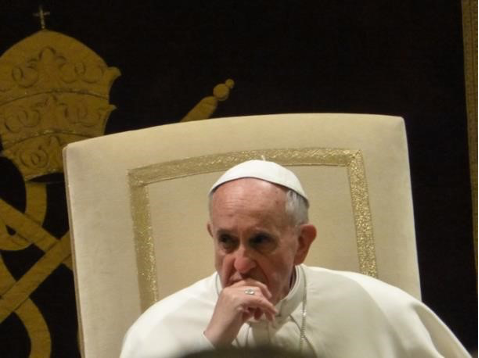
In an effort to reign in new Catholic communities and the concern about their potential abuses, the recognition of new institutes of consecrated life and new societies of apostolic life in Catholic dioceses will now first require the written approval of the Holy See, according to an Apostolic Letter (Motu proprio) titled Authenticum charismatis, published by Pope Francis on November 4. Canon 579 of the 1983 Code of Canon Law stated: “Diocesan bishops, each in his own territory, can erect institutes of consecrated life by formal decree, provided that the Apostolic See has been consulted.” But a bishop could consult Rome and then still go ahead whatever the answer, remarks an emeritus professor of Pontifical Lateran University, Msgr. Patrick Valdirni, in an interview with Vatican News (November 10, 2020). In his analysis of the new document, a French expert on canon law, Fr. Cédric Burgun (Catholic University of Paris), notes that the Pope had already repeated this requirement in 2016, stressing that such a consultation was necessary, otherwise any erection of a new institute or society would be considered as null and void (Droit canonique, November 6, 2020). The fact that new and stricter rules are now enforced suggests that the previously existing rules had not always been properly followed. Some bishops have continued to grant diocesan status to new communities without asking Rome first, reports I.MEDIA (November 16, 2020), a news agency with a focus on Vatican affairs, But such independence should no longer be possible with the new rules.
 The rationale for stricter rules is that bishops have lacked discernment when granting a status to new communities and that some founders who had failed in getting approval from a bishop had wandered from one diocese to another until they found a bishop willing to give his blessing, Burgun adds. While he writes that oversight may promote centralization, it may be the only realistic option for dealing with such issues in a time of globalization, with founders of new communities able to cross diocesan and national borders in their quest for legitimation. Moreover, once an institute or society is founded, its impact may go widely beyond diocesan boundaries. Jesús Miguel Zamora, general secretary of the Spanish Conference of Religious, shares the example of a proliferation of diocesan institutes of consecrated life in Latin America, which then spread around the world (Religión Confidencial, November 5, 2020). Authenticum charismatis is understood as a part of the current efforts by the Holy See to fight abuses and prevent the recognition of potentially deviant communities, usually gathered around a charismatic founder. There is still a lot to do for dealing with such issues, since the group in charge of dealing with diocesan institutes at the Congregation for Institutes of Consecrated Life and Societies of Apostolic Life in Rome is reportedly understaffed, according to I.MEDIA. The new rules have been enforced from Nov. 10, 2020, in contrast with the three months waiting period usually allowed before canonical changes take effect. According to Burgun, the likely reason is that the Pope wanted to prevent the risk of hurried recognition of new communities by some diocesan bishops if a longer transition period had been allowed.
The rationale for stricter rules is that bishops have lacked discernment when granting a status to new communities and that some founders who had failed in getting approval from a bishop had wandered from one diocese to another until they found a bishop willing to give his blessing, Burgun adds. While he writes that oversight may promote centralization, it may be the only realistic option for dealing with such issues in a time of globalization, with founders of new communities able to cross diocesan and national borders in their quest for legitimation. Moreover, once an institute or society is founded, its impact may go widely beyond diocesan boundaries. Jesús Miguel Zamora, general secretary of the Spanish Conference of Religious, shares the example of a proliferation of diocesan institutes of consecrated life in Latin America, which then spread around the world (Religión Confidencial, November 5, 2020). Authenticum charismatis is understood as a part of the current efforts by the Holy See to fight abuses and prevent the recognition of potentially deviant communities, usually gathered around a charismatic founder. There is still a lot to do for dealing with such issues, since the group in charge of dealing with diocesan institutes at the Congregation for Institutes of Consecrated Life and Societies of Apostolic Life in Rome is reportedly understaffed, according to I.MEDIA. The new rules have been enforced from Nov. 10, 2020, in contrast with the three months waiting period usually allowed before canonical changes take effect. According to Burgun, the likely reason is that the Pope wanted to prevent the risk of hurried recognition of new communities by some diocesan bishops if a longer transition period had been allowed.